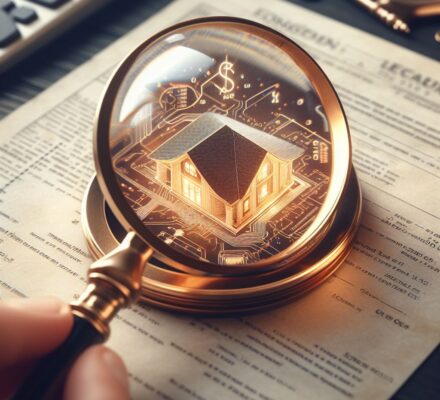So, you think calculating the tax basis for a 1031 exchange is a piece of cake? Well, think again!
Many investors like yourself make common mistakes that can cost them big time.
From forgetting to document the original purchase price to ignoring transaction costs, there are plenty of pitfalls to avoid.
In this article, we’ll dive into the nitty-gritty details and arm you with the knowledge you need to navigate the complex world of tax basis determination.
Don’t make these mistakes – your wallet will thank you!
Key Takeaways
- Properly document the original purchase price, including all relevant documents and additional acquisition costs.
- Account for capital improvements to avoid a higher tax burden and take advantage of tax savings opportunities.
- Consider depreciation recapture when selling a property to avoid unexpected tax liabilities.
- Do not ignore transaction costs, as they can be added to the tax basis to reduce capital gain and lower tax liability.
Not Properly Documenting the Original Purchase Price
To avoid common mistakes in determining the tax basis for a 1031 exchange, you must ensure that you have properly documented the original purchase price. This step is crucial because it forms the foundation for calculating your gains or losses when you sell your property and acquire a new one through a 1031 exchange.
When documenting the original purchase price, it’s important to gather all relevant documents, such as the purchase agreement, closing statement, and any additional costs associated with the acquisition. These could include legal fees, title insurance, and transfer taxes. By meticulously compiling and organizing these documents, you can accurately determine the cost basis of your property.
Additionally, it’s essential to account for any improvements or renovations made to the property since its original purchase. These costs can be added to the purchase price to increase your tax basis. Remember to keep detailed records of these expenses, including invoices, receipts, and contracts with contractors or suppliers.
Failing to Account for Capital Improvements
When calculating your tax basis for a 1031 exchange, it’s important not to overlook the inclusion of capital improvements in your calculations. Failing to account for these improvements can have significant consequences and may result in a higher tax liability than necessary. Here are some important things to consider:
- Increased tax burden: By failing to include capital improvements in your tax basis, you may end up paying more in taxes than you should. These improvements can increase the value of your property and should be factored into your calculations to accurately determine your tax basis.
- Missed tax savings: Capital improvements can also provide opportunities for tax savings. By properly accounting for these improvements, you may be eligible for deductions or credits that can lower your tax liability. Failing to include these improvements means missing out on potential tax savings.
- Risk of an IRS audit: Failing to account for capital improvements can raise red flags with the IRS. If you’re audited and it’s discovered that you didn’t include these improvements in your tax basis, you may face penalties and interest on the additional taxes owed.
Overlooking Depreciation Recapture
Don’t overlook the importance of considering depreciation recapture when determining the tax basis for a 1031 exchange. Depreciation recapture refers to the taxes that must be paid on the amount of depreciation claimed on a property that’s being sold as part of a 1031 exchange. Failure to account for depreciation recapture can result in unexpected tax liabilities for the taxpayer.
When you sell a property that you have claimed depreciation on, the IRS requires you to recapture the depreciation you have taken over the years. This means that you must pay taxes on the amount of depreciation claimed. The tax rate for depreciation recapture is 25%, which is higher than the long-term capital gains tax rate.
To calculate the depreciation recapture, you need to determine the adjusted basis of the property. This is the original purchase price plus any capital improvements made minus the depreciation claimed. The adjusted basis will then be used to calculate the depreciation recapture tax liability.
It is crucial to properly calculate and account for depreciation recapture when determining the tax basis for a 1031 exchange. Failing to do so can result in unexpected tax bills and potential penalties from the IRS. Consulting with a tax professional or a qualified intermediary can help ensure that you accurately factor in depreciation recapture when planning a 1031 exchange.
Ignoring Transaction Costs
Another common mistake to avoid when determining the tax basis for a 1031 exchange is disregarding the impact of transaction costs. These costs can have a significant effect on your tax liability and shouldn’t be ignored. Here are three reasons why:
- Missed Opportunities: By failing to consider transaction costs, you may miss out on potential tax savings. These costs can be added to your tax basis, reducing your capital gain and ultimately lowering your tax liability.
- Higher Tax Burden: Ignoring transaction costs can lead to a higher tax burden. If you exclude these costs from your tax basis, your capital gain will appear larger than it actually is, resulting in a higher tax bill.
- IRS Scrutiny: Disregarding transaction costs can raise red flags with the IRS. Failing to properly account for these costs may trigger an audit, potentially exposing you to penalties and interest.
To ensure you accurately determine your tax basis, it’s crucial to include all relevant transaction costs. By doing so, you can maximize your tax savings and minimize your tax liability.
Now, let’s discuss another important mistake: forgetting to adjust for non-qualifying property expenses.
Forgetting to Adjust for Non-Qualifying Property Expenses
To accurately determine your tax basis for a 1031 exchange, it’s essential to remember to adjust for any non-qualifying property expenses. Non-qualifying property expenses refer to any expenses that aren’t directly related to the purchase, improvement, or operation of the property. These expenses can’t be included in the tax basis calculation for a 1031 exchange.
Some examples of non-qualifying property expenses include personal expenses such as homeowner’s association fees, personal property taxes, and repairs and maintenance that aren’t considered necessary for the property’s operation. It’s important to exclude these expenses from your tax basis calculation to ensure compliance with IRS regulations and avoid any potential tax liabilities in the future.
To accurately adjust for non-qualifying property expenses, you should carefully review your records and identify any expenses that don’t meet the criteria for inclusion in the tax basis calculation. Keep in mind that only expenses directly related to the property and its operation should be considered. By doing so, you can ensure that your tax basis for the 1031 exchange is calculated correctly, minimizing any tax consequences and maximizing your potential tax savings.
Frequently Asked Questions
How Can I Properly Document the Original Purchase Price for a Property in a 1031 Exchange?
To properly document the original purchase price for a property in a 1031 exchange, you should gather all relevant documents, such as the purchase agreement, closing statement, and any improvements made. Keep these records organized and easily accessible for tax purposes.
What Are Considered Capital Improvements and How Do They Affect the Tax Basis in a 1031 Exchange?
When determining tax basis for a 1031 exchange, it is crucial to understand what is considered a capital improvement and how it impacts your tax basis. Let’s dive into the details.
What Is Depreciation Recapture and How Does It Impact the Tax Basis in a 1031 Exchange?
Depreciation recapture refers to the taxable gain resulting from the sale of a property that has been depreciated. It impacts the tax basis in a 1031 exchange by increasing the amount of taxable income you must report.
What Transaction Costs Should Be Taken Into Account When Determining the Tax Basis in a 1031 Exchange?
When determining the tax basis for a 1031 exchange, it’s important to consider transaction costs. These include fees for real estate agents, attorneys, and title insurance. Be sure to factor them in for an accurate calculation.
What Are Non-Qualifying Property Expenses and Why Should They Be Adjusted for When Calculating the Tax Basis in a 1031 Exchange?
Non-qualifying property expenses, such as personal use expenses, should be adjusted for when calculating tax basis in a 1031 exchange. Failing to do so can result in incorrect reporting and potential tax liabilities.




